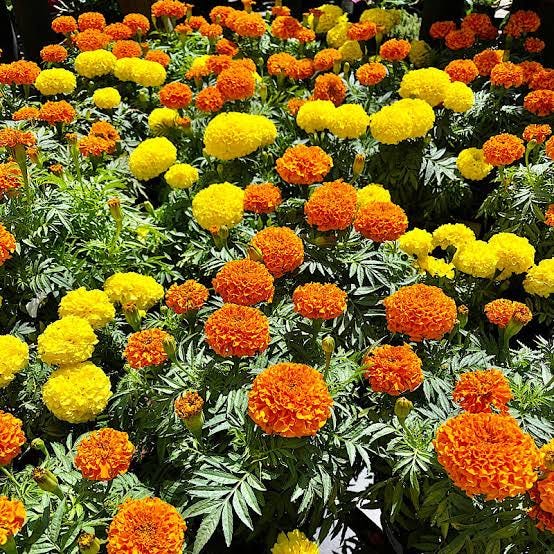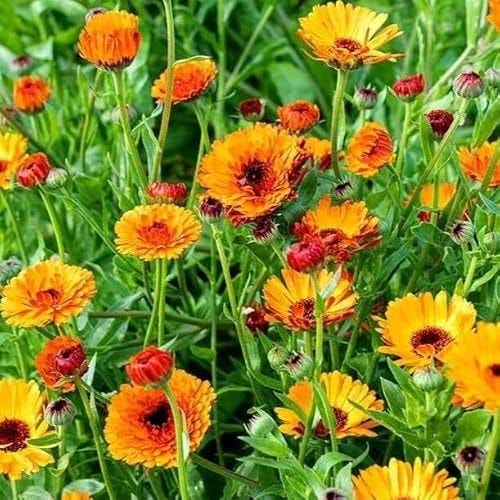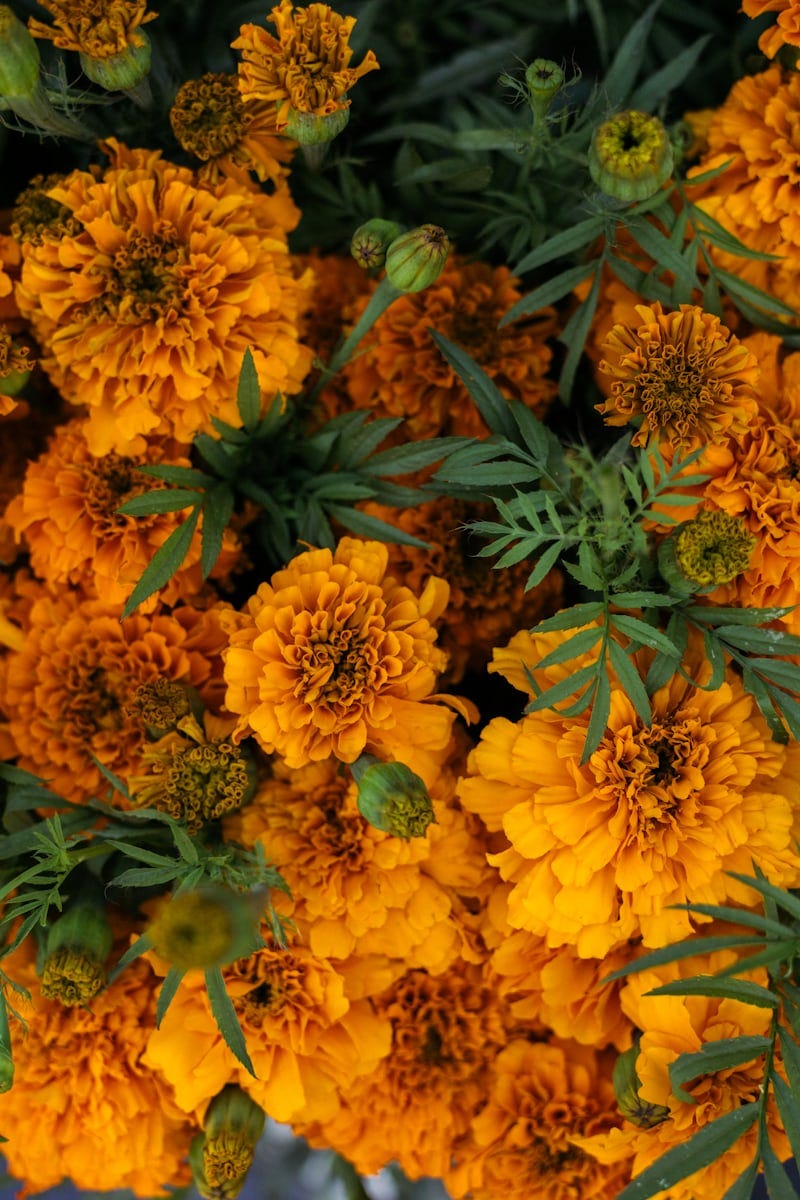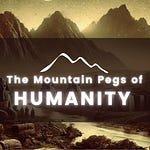🏵️🏵️🏵️🏵️🏵️🏵️🏵️🏵️🏵️🏵️🏵️🏵️🏵️🏵️
Names, places and dates have been changed to protect the privacy of the accuser and accused. This is her story detailing how she experienced S.H. and was confronted by other issues in her industry of working within the Islamic NGO sector. The intention of this is to provide insight into real solutions. Solutions rooted in a deeper understanding of the Deen when faced with hypocrisy in the ummah. (Bismillah):
“Assalamu alaykum, I’m *Asiyah Houdini.
I want to speak about what I’ve endured: sexual harassment and attempts at exploitation in the workplace — even in supposedly "Islamic" environments. But more importantly, I want to testify to how Allah SWT Helped me towards financial independence. That journey brought me liberation: freedom of expression, freedom from unsafe spaces, and freedom from people whose morals clashed with mine.
🏵️🏵️🏵️ 2004: The Shift 🏵️🏵️🏵️
I was working in retail but felt drawn towards the NGO sector — particularly the Islamic NGO as a Muslim. I began volunteering, gravitating towards one organisation in particular where I became quite active. While teaching at their head office, I stumbled upon ‘Understanding Power’ by Noam Chomsky. They let me keep it; it had been gathering dust on a shelf according to them.
That book changed my trajectory…
Through it, I came to understand the manipulations between corporations, the media, and politics. It opened my eyes to the reality that real change doesn’t come from the top down, but from the grassroots up. This conviction, alongside inspiration from the Medina Model, fuelled my desire to serve post-Apartheid communities in practical ways.
2005: Working Within the System
Eventually, I was offered a job at the head office. I was excited and grateful, even though the work was harrowing — driving through gang-ridden areas alone, witnessing children with burn wounds left untreated, diabetics losing limbs due to lack of care, babies found in bins. The trauma was everywhere.
But what shocked me more than the street trauma was the internal toxicity.
The female director encouraged staff to wear lipstick and smile — even while they were the ones counselling women who had survived sexual abuse, many were survivors themselves. We were being dressed up to “sell” the organisation, not serve its mission. At one point, she took me to events and placed me in the path of wealthy male donors who made advances that I had to dodge while not alienating potential sponsorship. It was awkward. And it became obvious she was using my appearance as bait.
When I covered my face to photograph men at a dhikr, she was irritated.
Her brother, a madrasah teacher, employed by her, at her various centers, pestered me while I worked. Despite my coldness towards him, he persisted. She once even instructed a male volunteer to get a lift with me — without my consent. I was furious. I told her never to do that again.
Things Escalated
One of the managers became openly vulgar. I wore hijab — but that didn’t stop his comments:
He compared my chest to a celebrity featured in the newspaper sitting on our conference table.
He joked about overweight women’s privates.
He asked me — laughing — to assist him with istinja.
Then one day, he physically grabbed me in the passage and began wrestling with me, holding me by the wrists. Alhamdulillah, for my self-defence training — I broke free.
I kept working as if nothing had happened. Not because I wasn’t affected, but because the trauma around me was already overwhelming. I told myself this man was mentally unstable — scarred after watching a toddler die in a fire. I excused his behaviour… maybe I shouldn’t have.
The Breaking Point
Eventually, I left. There were too many concerns: questions regarding mismanagement of funds, lack of transparency, abuse of power, and unethical behaviour. The final straw? Sitting in a meeting with HR and the director as they backbit a colleague who had just raised R2 million for the organisation in only one month. He was gentle and hardworking — and they disrespected him.
It became clear: they needed us more than we needed them.
2006: My Leap of Faith
With the help of a wealthy overseas donor I had met prior, I decided to launch my own NPO. That initial support — a small amount in a stronger currency — gave me a start.
But fundraising remained a challenge. Some directors tried to rope me into their cliques. One told me he had reconciled with his first wife "just for the kids.” He introduced me to a so-called well-connected Imam, who invited me to weekly lunches under the guise of helping me. I walked out on the second…
Both men crossed boundaries. Both expected personal access in return for “support.” I blocked them both.
As director of my own organisation, I had the power to set boundaries and uphold my ethics. Anyone who didn’t align with that was simply cut off.
Charity Shop & New Beginnings
I received permission to sell donated goods and just needed a venue for a charity shop. One day, while grabbing coffee en route to scout a location, I met a man — let’s call him Yusuf. We married soon after and had a son.
While pregnant, I met a business partner working in educational media and saw the potential for a joint fundraising venture. Yusuf joined us, and we often met with our baby in tow.
2008: The Cycle Repeats
The business partner soon showed his true colours. Whenever Yusuf stepped away, he’d make inappropriate, romantic remarks. Once, he muttered to himself, “You had your baby, I got married... but in another time, it could have been...” while avoiding eye contact and smiling to himself.
He said similar things more than once and every time Yusuf stepped out for a short time to go to the bathroom or the shop to fetch something…
I felt disgusted and made a point of letting it show on my face but it didn't deter him. He had an attractive, younger wife — whom he called patient and easy going — yet felt entitled to flirt behind her back and my husband’s.
Unable to disclose this yet to Yusuf, I started diversifying my income streams using skills I’d learned. Yusuf didn’t understand at first — he thought I was being a workaholic. I shrugged in response, playing it cool and said:
“I just think it's better to not keep all our eggs in one basket.” 🏵️🏵️🏵️🏵️
Eventually, Yusuf saw the business partner’s impulsive side too. Around that time, he found employment through one of our sponsors.
The business partner, meanwhile, became increasingly agitated. I was making more money independently. His grip weakened, and he broke off our contract. I wasn’t fazed — I was thriving without him.
We still had one last joint project to complete. Since Yusuf was no longer involved, I suggested to the partner — simply (and Islamically) — that we meet in a public space like the charity shop.
His response? A panicked voice note:
“Um... I'm very disturbed. I hope you don’t think I was ever coming on to you…I'm just worried you might have taken things the wrong way… ”
That’s when Yusuf walked in. I gladly handed him the phone and let him listen.
He saw my simple text suggesting a public meeting… and then heard the over-the-top, defensive audio.
I didn’t need to say a word. That moment was cathartic. Alhamdulillah.
Clarity, Power & Protection
Typically, the scoundrel denied everything and grew even more defensive. We cut off all contact with him and moved on, while Yusuf settled into his new job.
But months later, that same man had the audacity to walk into the charity shop and tried to shake me down for money. According to him, I owed him. In reality, he was the one who had left me in the dwang. He claimed he needed cash to go for Umrah and assumed I’d be a pushover. He underestimated me—again. I told him, in no uncertain terms, to get lost. It was a bit of a scene, but well worth it. Alhamdulillah.
2009: A Year of Upheaval
Yusuf and I moved closer to the schools for the children, but the cracks in our marriage widened.
I didn’t tell my main UK sponsor—who funded most of my NGO work—about the struggles in my marriage. It wasn’t his business.
But even without knowing the state of my marriage, he crossed a line. Unprompted, he confessed that he was developing feelings for me.
Let me be clear: it’s never acceptable to hit on a married woman—regardless of whether her marriage is thriving or not.
I shut him down repeatedly, saying, “If you’re not my husband, you’re not my type.” What hurt most was that it was true—Yusuf was the only man I was attracted to. That made his rejection of me cut even deeper. Meanwhile, I was still dependent on this donor for survival—trapped between a husband who threatened to leave me and a sponsor who began using emotional manipulation under the guise of support.
This sponsor, who once felt like a hero, quickly became a source of unease. His behaviour was a betrayal cloaked in financial aid.
Lessons in Taqwa
In 2005, while still working at the NGO, I once found myself drawn to a married colleague. But I never crossed any lines—I bottled it up, gritted my teeth, and drove home in tears. I knew the fatwa allowed proposing in some cases, but taqwa dictated restraint. I would never do to someone else's marriage.
So when this so-called “supportive” donor flirted with a married woman (me), it filled me with disgust and fury. Not only did it violate Islamic conduct, it trampled basic decency.
Despite everything, I kept quiet. I still needed that income. I still needed to provide for my children.
🏵️🏵️ Rise Through Ruins 🏵️🏵️
So what did I do?
I made dua. I engaged in thikr. And I got to work.
I started developing new income-generating skills. Slowly but surely, I grew more independent. When Yusuf eventually gave me talaq and threw me and the kids out, I was ready. I found a small flat near the kids’ school—something he never expected me to pull off.
When the donor abruptly pulled funding, I didn’t flinch. He still didn’t know I was divorced—I hadn’t told him, to avoid giving him any further sense of entitlement. Alhamdulillah.
I’ve worked on various projects part-time ever since. I vowed to never again be dependent on anyone but Allah SWT.
🏵️ Today 🏵️
Today, we are still in that flat. The kids are stable. We're comfortable. I work remotely and have increased my client base. I recently blocked a sponsor who started getting personal.
This time, I could afford to cut ties quickly—because of the skills I’ve gained and the clients I now choose. Clients who respect my values.
Yusuf and I are civil co-parents. He contributes child support. Alhamdulillah.
While I’ve healed and moved forward, I still have a bone to pick—with certain so-called “leaders” in our global Islamic community but first to those who mean well…
🏵️🏵️🏵️🏵️
A Note to More Modernist Inclined Speakers & Teachers
To the progressive voices advising women to just “get jobs”:
Women don’t need jobs. They need income-generating skills.
Assets, not hours. Independence, not dependency. Sometimes a good husband can be an asset—but only if he is willing to work on the marriage, including himself in following the holistic sunnah.
And make no mistake: despite Islam's high standards, there are men in our Ummah who exploit women—married or not. These same predators often exploit other men too—those without means or access.
We must each develop our own leverage. Our mother Khadijah bint Khuwaylid didn’t have a job—she had businesses and investments. The Prophet ﷺ and his companions weren’t employees—they traded, generated income and shared it with others.
Ultimately Provision and Protection come from Allah Alone.
So reflect on Sarah, the wife of Ibrahim (AS), and how Allah Protected her from the king. Or how his other wife was provided for. Then reflect on Maryam (AS), who received fruits out of season.
That was a message for the well-meaning speakers. As for those the others…
🏵️🏵️🏵️🏵️
What Is—and Isn’t—Sexual Harassment?
Before we continue, I need to state this clearly:
I wasn’t flirtatious. I wasn’t friendly. I was serious, formal, and professional.
Nothing about my demeanour justified how I was treated.
Here’s how I define sexual harassment using my lived experiences to help others understand it:
1. At the NGO Workplace - Sexual Harassment Defined As:
Persistent gender-based exploitation. One man used sexual innuendo, made lewd jokes, and it escalated to physical assault. Despite my clear discomfort, the NGO culture enabled his behaviour. This wasn't just a personal failure—it was systemic.
NOT Sexual Harassment:
A woman engaging in mutual marriage discussions, where both parties are expressing interest.
2. Post-NGO, During Fundraising - Sexual Harassment Is Defined As:
Boundary-testing disguised as mentorship. Update meetings turned out to be unwitting dates and unnecessary follow up messages. Religious manipulation blurred professional lines.
NOT Sexual Harassment:
A halal proposal made followed by mutual reciprocation and interest.
3. Business Partner Advances - Sexual Harassment Defined As:
Unwanted romantic advances, attempted coercion, financial retaliation after rejection. A complete abuse of professional trust.
NOT Sexual Harassment:
Emotional discomfort based on unhealed trauma—but without any actual misconduct.
4. Donor Advances - Sexual Harassment Defined As:
Repeated romantic suggestions from a man funding my work. I was married. I said ‘no’ - He kept pushing. His financial influence became a tool of control. This was both economic and attempted emotional exploitation.
NOT Sexual Harassment:
Halal interest expressed once, respectfully, and to women who are single.
🏵️🏵️🏵️🏵️
Final Word
Some of you in the da’wah scene have used the label of “predator” with implications of “sexual harassment” to attack rivals— brothers—who were expressing halal intentions.
Shame on you!
You trivialised the pain of actual victims. You hijacked our collective trauma to score political or social points.
Your hypocrisy is obvious. Your so-called "feminism" and "progressivism" reek of performative insincerity.
Astaghfirullah al-‘Atheem.
🏵️🏵️🏵️🏵️
And to the very few women who falsely accuse men of harassment:
You are making it harder for the rest of us to speak up. You are harming women and children. You will not escape the spiritual consequences of your deceit.
My Closing Dua
So with that I pray that:
Allah SWT Protect us from all forms of exploitation—emotional, spiritual, financial, and physical…
May He Protect the ummah from both SH and false accusations and give us the clarity to distinguish truth from manipulation.
May those of us who are sincere be granted abundant provision, righteous companionship, and safety from those who worship their desires.
Ameen, thumma Ameen.
Wassalamu alaykum wa rahmatullahi wa barakatuh.”
🏵️🏵️🏵️🏵️
Ameen, Thumma, Ameen
Conclusion to Asiyah’s Letter – For Reflection:
Stop telling Muslim women to “just get a job.” Instead, encourage two things:
First, inner spiritual healing — the figurative mihrab — where true strength and provision begin. Our greatest women didn’t “hustle”; they connected deeply to Allah SWT.
Asiyah (AS) stood firm under Fir‘awn’s tyranny. That same Fir‘awnic toxicity seeped into Maryam’s (AS) society — and it’s still here. Maryam, though isolated, received divine provision — fruits out of season — because of her connection to Allah SWT.
Second, meaningful skills. Khadijah (AS) didn’t have a “job,” but she traded ethically and succeeded in a system that exploited women. Fatimah (AS) owned property managed by others, but her focus remained on nurturing deen and dawa at home.
If we aim higher — through tawakkul and purpose-driven skills — worldly things like jobs and income fall into place.
Khadijah AS was called Taheera for a reason. Reflect on that…
🏵️🏵️🏵️🏵️
🌼 Asiyah – Marigold
Story: Escaping Sexual Harassment in the Islamic NGO Sector (2005–2011)
Flower: Marigold – The Guardian Bloom
Symbolism:
Repels pests — like a woman forced to protect herself from invasive male authority and unchecked egos.
Known as the flower of the sun — it evokes inner fire, light, and alertness.
Associated with resilience, sacred defiance, and the ability to thrive in hard soil.
Like the Qur’anic Asiyah, she found her truth and protection in Allah SWT, not in the institutions built by men.
Marigold (Tagetes) is one of the most multifunctional, quietly powerful plants in traditional gardens, herbal medicine, spiritual practices, and even food culture.
Here’s a breakdown of its deeper layers:
🌼 Marigold – The Multitasker of the Garden and Soul
🔸 1. Pest Control & Garden Companion
Repels nematodes (microscopic root pests) and insects like whiteflies and aphids.
Often planted near vegetables (like tomatoes, beans, and squash) to protect crops without chemicals.
It’s like a natural bodyguard, quiet but vigilant.
🧕🏽 Symbolically: A woman who doesn’t just guard herself, but protects the ecosystem around her.
🔸 2. Medicinal & Anti-Inflammatory (Especially Calendula species)
Petals (especially from Calendula officinalis, sometimes called “pot marigold”) are used in salves and teas for:
Skin healing (cuts, eczema, acne)
Menstrual regulation
Anti-inflammatory support
🌿 It heals what others cannot see — making it a symbol of hidden resilience and feminine care.
🔸 3. Edible & Nutrient-Rich
Some varieties have edible petals, used to colour dishes or as natural food dye (called the “poor man’s saffron”).
High in antioxidants and used in herbal traditions for internal cleansing.
🍲 Marigold nourishes as it defends. It doesn’t just say no — it offers something better.
🌼 For Asiyah ‘Houdini’ - Marigold now becomes even more layered:
Protector from Predators. Healer of Wounds. Witness of Betrayal.
Yet she blooms — vivid, fragrant, unapologetically alive.
Summary:
Pest control or vigilant bodyguard while companion - dealing with SH and also as a loyal wife
Heals and Regulates (bounces back from each incident resilient)
Nourishes - she grows wealth independently of those trying to exploit her.
🏵️🏵️🏵️🏵️
Conclusion: On Unwanted Attention and Islamic Rights
Fear the Curse of the Oppressed Woman
The Prophet ﷺ said:
“The best of you are those best to their women.” (Tirmidhi)
“Whoever harms a believer in his person, property, or honour, Allah will Oppose him until He makes him repent.” (Hadith)
Men who pursue women in ways not permitted by the Shari‘ah — pressuring, harassing, or emotionally wearing them down — should know: this is not love, it is dhulm (oppression).
A woman’s heart at the very least may silently curse the one who wronged her, and that curse — though unspoken — reaches Allah, and may be joined by the angels. The Prophet ﷺ warned us to fear the du‘a of the oppressed, for it has no barrier between it and Allah SWT.
If her heart is wounded and her honour disturbed, that la‘nah (curse) can strip your barakah, harm your rizq, and follow you into the Akhirah.
🏵️🏵️🏵️🏵️
Fear Allah. Honour women. And remember:
Allah Knows what is hidden.
Assalamu alaykum wa rrahmatali wa barakatu.
🏵️🏵️🏵️🏵️🏵️🏵️🏵️🏵️🏵️🏵️🏵️🏵️🏵️🏵️




















